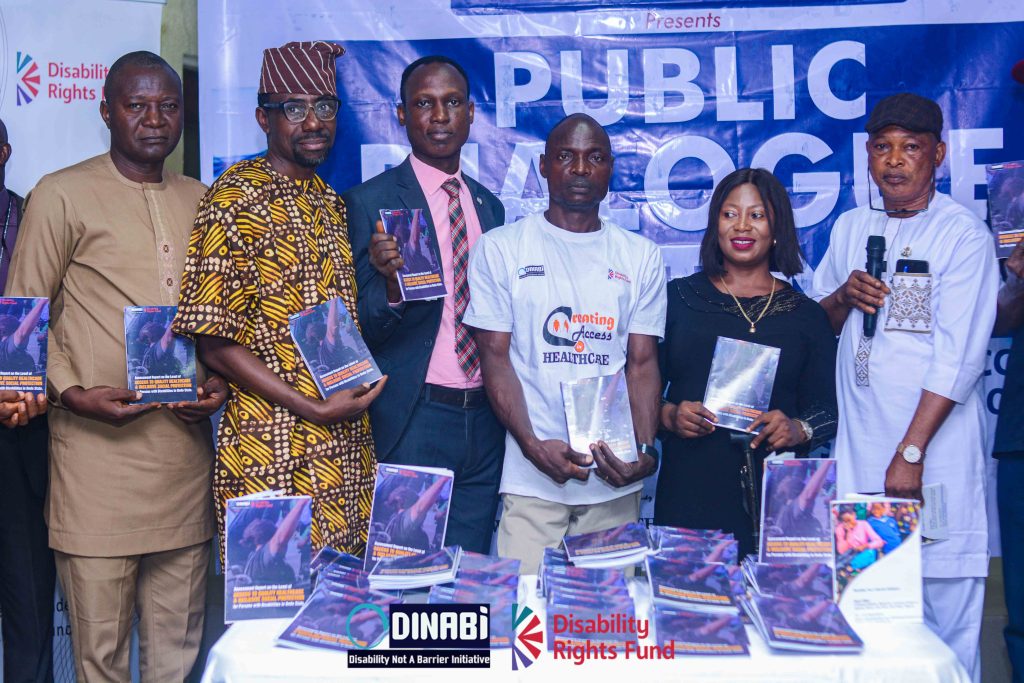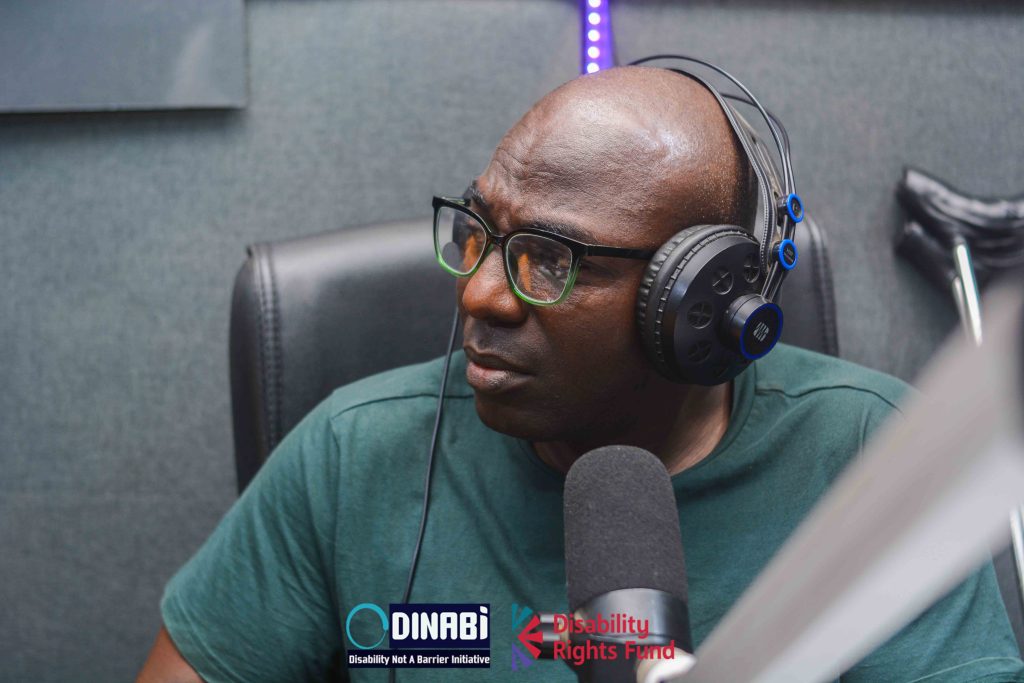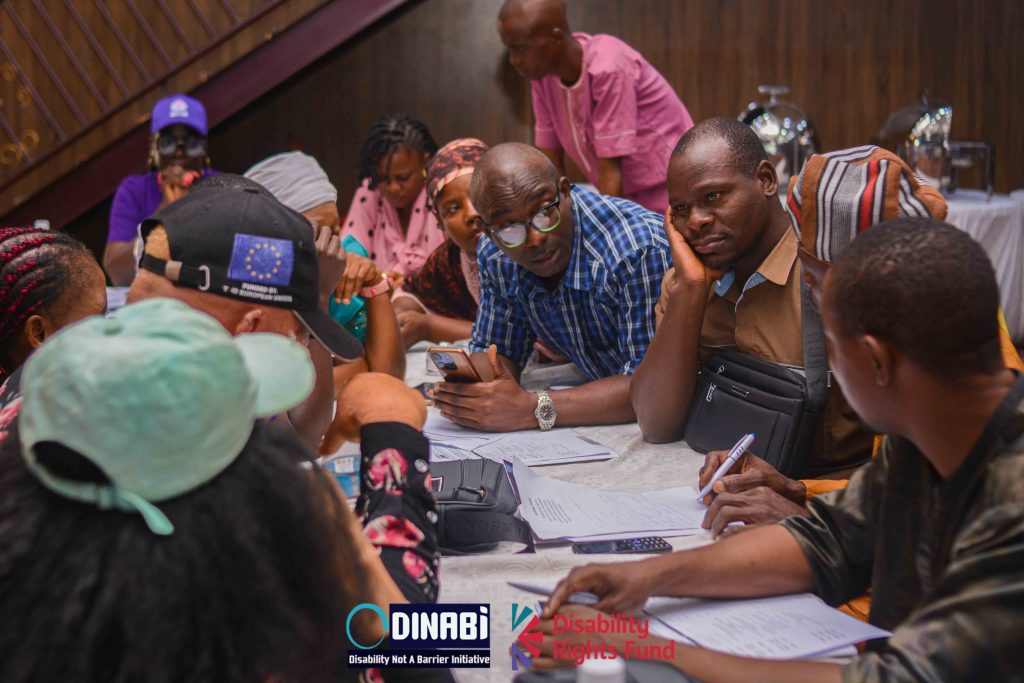Accessible Healthcare & Inclusive Social Protection
in ONDO STATE
Advancing the rights of persons with disabilities in Ondo state to quality & accessible healthcare services and inclusive social protection.
Have you read our latest report on the level of access to quality healthcare & inclusive social protection in Ondo state for persons with disabilities?
Project Objectives

Baseline Survey
To conduct a baseline survey and produce a detailed report on the accessibility of healthcare services and inclusivity of social protection programs in Ondo state, towards a robust advocacy tool to identify gaps and inform evidence-based recommendations for improving the health and well-being of persons with disabilities.
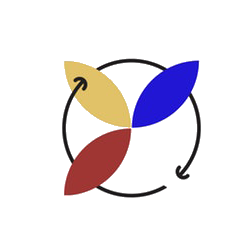
Capacity Building
To build the capacity of PWDs and critical stakeholders in Ondo state in advanced advocacy skills, budgeting and policy influencing, enabling them to develop and implement effective strategies for engaging duty bearers towards increased budgetary allocations that support accessible healthcare and inclusive social protection policies and programs.

Inclusive Budgeting
To influence the Ondo State 2026 Budget by advocating for a significant increase in budgetary allocations towards accessible healthcare services and inclusive social protection programs ensuring rights and needs of PWDs are prioritized.

Disability Law Advocacy
To advocate for a comprehensive review of Ondo State Disability Law to align with International and National disability rights frameworks, and to mobilize public support through awareness creation and Community engagement.
Accessible Healthcare & Inclusive Social Protection
In a recent survey carried out by DINABI Nigeria among persons with disabilities in Ondo state, findings in the survey showed that 91.2% agreed they lacked access to disability friendly health facilities and services while only 8.8% claimed to have access to health care services. Also, despite a social protection policy being put in place, persons with disabilities have been largely left out of its implementation with 48.5% claiming they have never benefitted from any social protection scheme. It was observed that healthcare facilities were mostly inaccessible to persons with disabilities and some of the health personnel had limited knowledge on disability inclusive practices. Also, most of the empowerment and support schemes by the state government were usually an “after-thought” inclusion without deliberate plan to include PWDs.
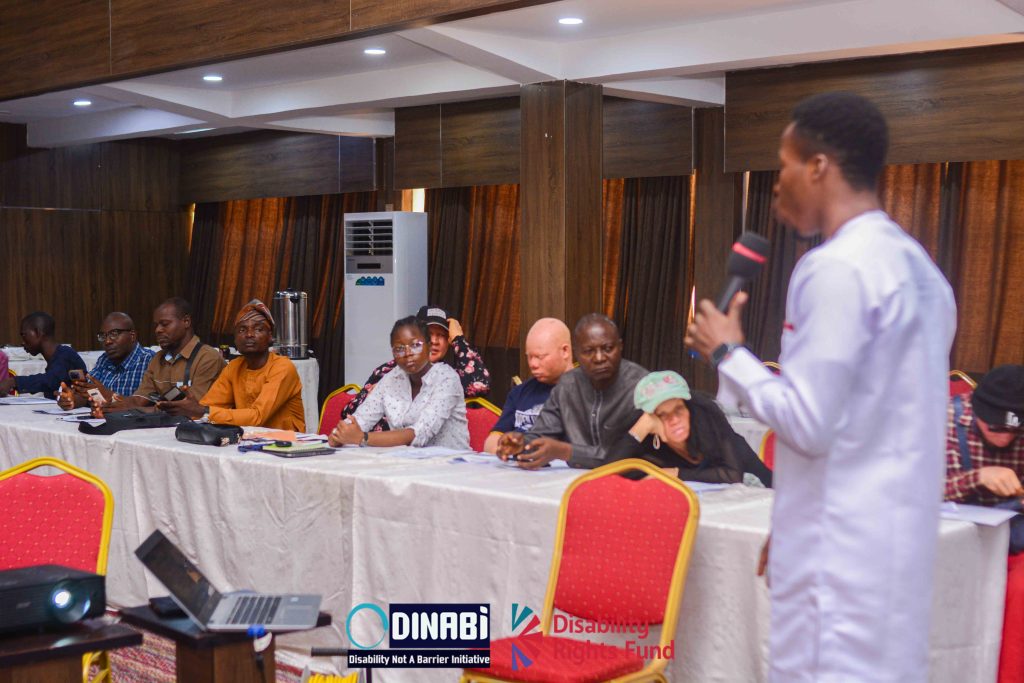
Most of the problems however stemmed from the lack of proper/comprehensive legal framework or law as well as inclusion in the state budget to ensure proper planning and execution thereby denying PWDs of their right leading to tokenism and charity-based inclusion. The current disability law was passed 13 years ago with the sole objective of establishing the agency for the welfare of persons with disabilities without emphasizing their rights to critical aspect of life such as health, social protection, freedom from discrimination, equal opportunity in employment and public life etc. This has invariably limited the opportunities of the disability community from enjoying service delivery on an equal basis with other members of the society. This aligns with CRPD Article 5 (Equality and Non-discrimination), 25 (Health), and 28 (Adequate Standard of Living and Social Protection); and SDGs Goals 10 (Reduced Inequality) and 16 (Peace, Justice and Strong Institutions).
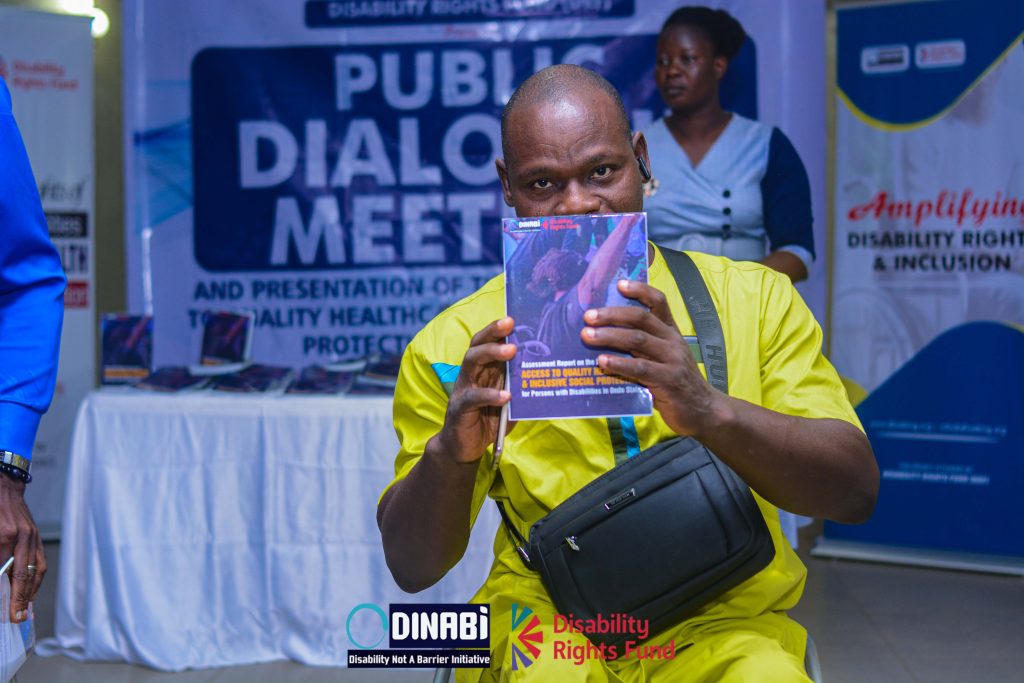
Unfortunately, Ondo State Agency for the Welfare of Persons with Disabilities Law 2011 failed to adequately provide for the rights of PWDs to health and social protection as the law only have few provisions to cater for PWDs. Despite this obvious flaw, stakeholders have not been able to review the law since its emergence 13 years ago. Article 25 of the UNCRPD enjoined states Parties to recognize that persons with disabilities have the right to the enjoyment of the highest attainable standard of health without discrimination on the basis of disability. In the same vein article 28 of the UNCRPD states that State Parties recognize the right of persons with disabilities to an adequate standard of living for themselves and their families, including adequate food, clothing and housing, and to the continuous improvement of living conditions.
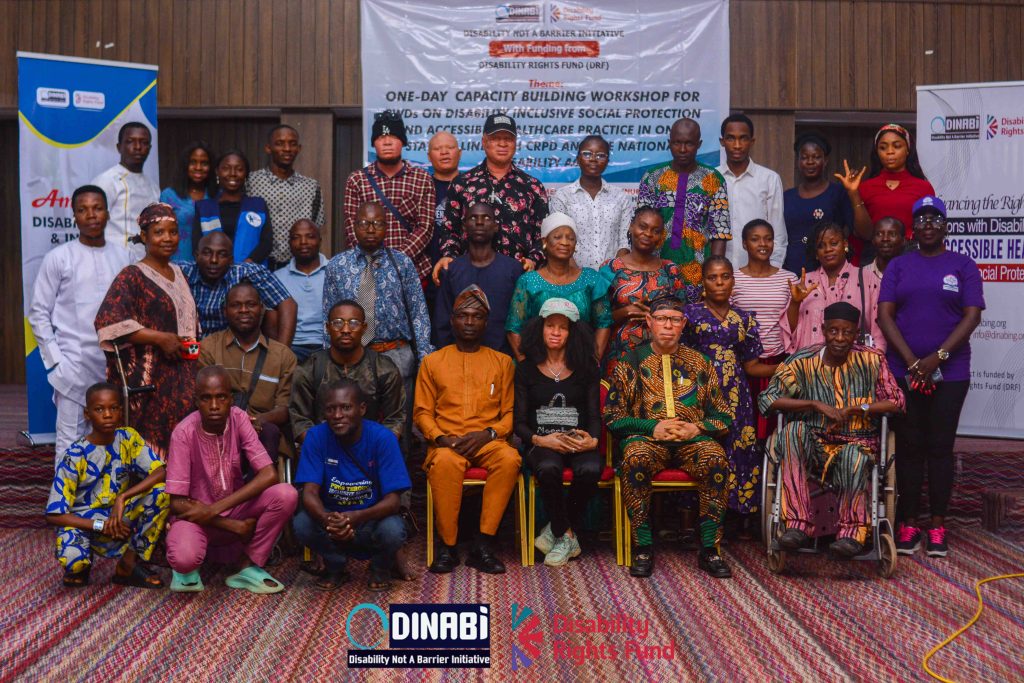
Project Pictures
